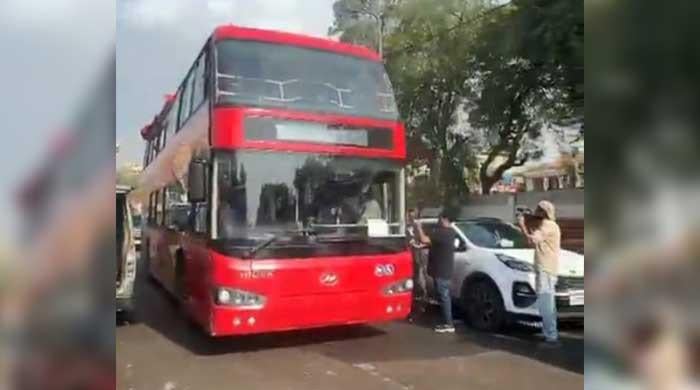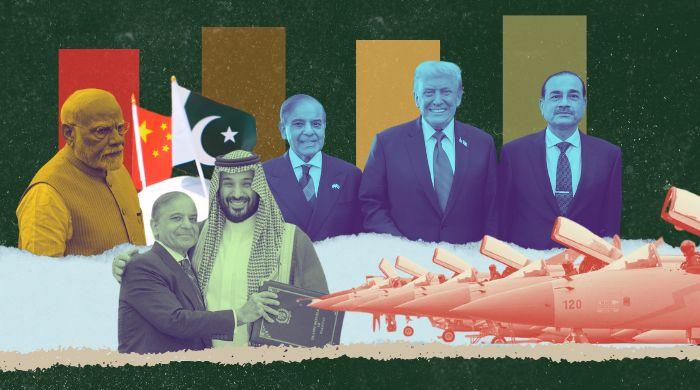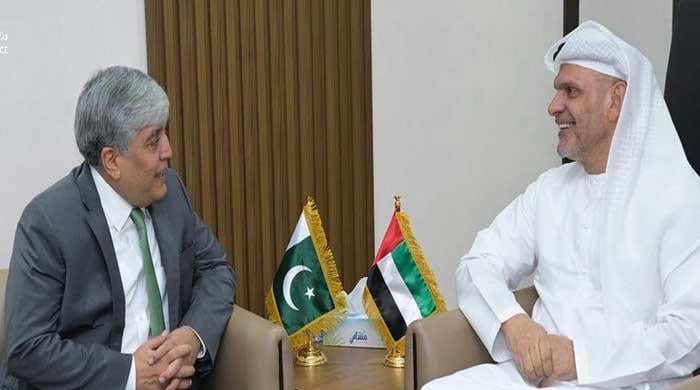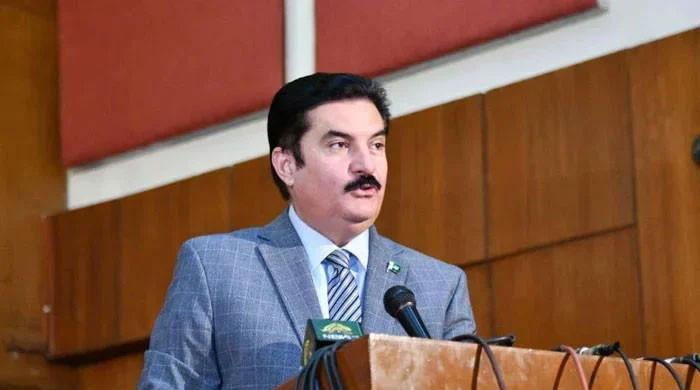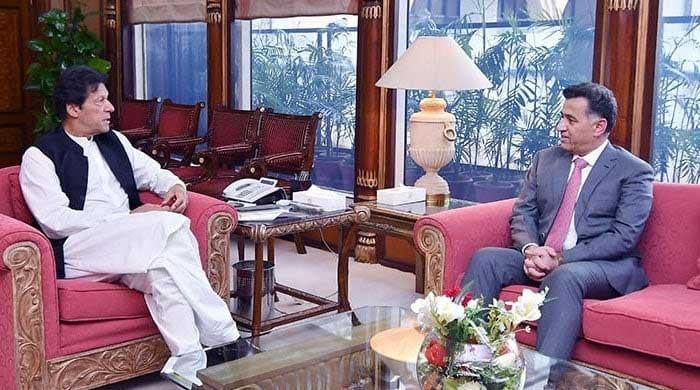Revered humanitarian Abdul Sattar Edhi laid to rest after state funeral
He was given guard of honour and gun salute by Pakistan Army before funeral prayers began
July 09, 2016
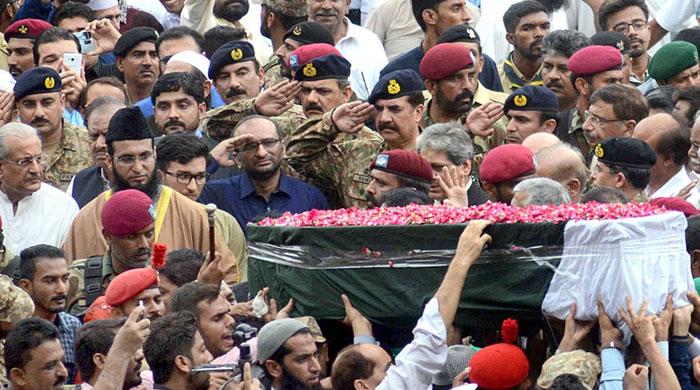
KARACHI: Revered humanitarian Abdul Sattar Edhi was laid to rest at the Edhi Village on Saturday in a grave he had dug for himself 25 years ago.
Funeral prayers for Edhi, who passed away yesterday after a prolonged illness at the age of 88, were attended by top military and political leadership amid strict security.
President Mamnoon Hussain, Chief of Army Staff General Raheel Shareef, Chief Minister Punjab Shahbaz Sharif, Chief Minister Qaim Ali Shah and Sindh Governor Ishrat ul Ebad attended the funeral held at the National Stadium.
People from all walks of life including Sindh DG Rangers Maj General Bilal Akbar, Naval Chief Admiral Muhammad Zakaullah, DG ISPR Gen Asim Bajwa, and SIUT head Dr Adeeb Rizvi attended the funeral at the stadium.
People in attendance displayed great patience and discipline as final preparations were being made.
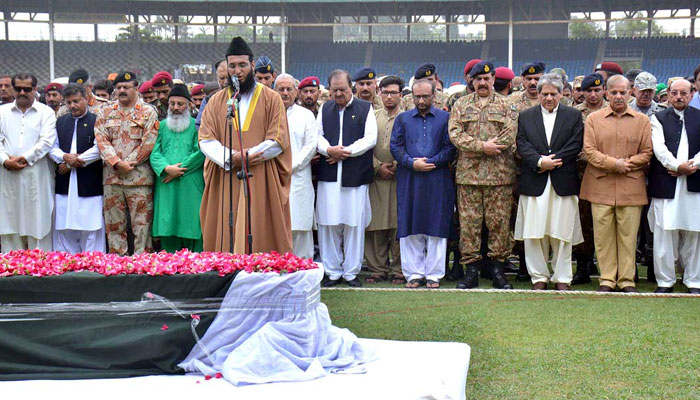
Funeral prayers of Abdul Sattar Edhi being offered at Karachi's National Stadium
He was given guard of honour and gun salute by Pakistan Army before funeral prayers began
His funeral prayers were led by Maulana Ahmed Khan Niazi.
Over 2000 policemen guarded the venue.
Edhi's family requested authorities to not block roads for the funeral.
Earlier during the day his body was brought at his Meethadar office, where his last funeral rites were performed by his son Faisal Edhi.
He will be buried at the Edhi Village where he had dug his own grave 25 years ago.
In his last act of kindness, he donated all of his body organs. Because of his condition, only his cornea will be donated. An operation to extract his cornea was conducted. Two people will benefit from it.
The humanitarian wished to be buried in the clothes he died in, a wish that was honoured by his family.
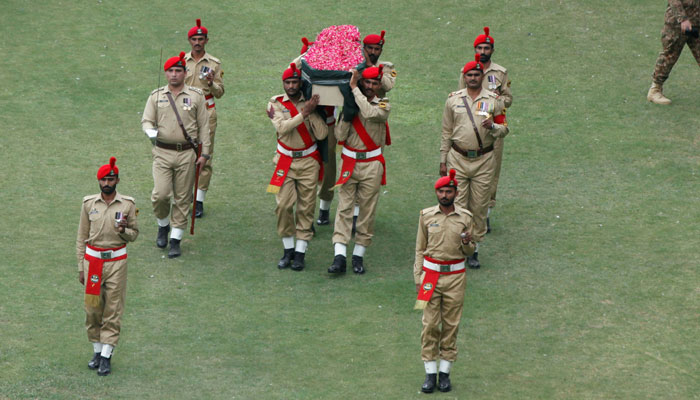
Soldiers carry coffin of Abdul Sattar Edhi during his funeral
Edhi is revered as a national hero in Pakistan of nearly legendary status. He established the welfare organisation Edhi Foundation almost six decades ago that owns and runs Pakistan's largest ambulance service, as well as nursing homes, orphanages, clinics, maternity wards, morgues, homes for the elderly, and women's shelters, along with rehabilitation centers and soup kitchens across the country.
The head of the Edhi Foundation had received a number of international honours including Pakistan's Nishan-e-Imtiaz, the Ramon Magsaysay Award, the Lenin Peace Prize, and the Balzan Prize among several other international honours for his humanitarian work.
In 2011, then Prime Minister Yousuf Raza Gilani proposed Edhi's name for the Nobel Peace Prize. He appeared on the Nobel list again this year after he was nominated for the award by young Pakistani Nobel laureate Malala Yousafzai.
Starting from humble beginnings, he was known to stay true to his roots and focus all his energy on his humanitarian work.
In an earlier interview with Geo News, Edhi said he only owned two pairs of clothes which he washed himself — a tradition he had continued for many years. He lived in a small one-room flat located above the office of his charitable organisation.
“He never established a home for his own children,” his wife Bilquis Edhi told news agency AFP in an earlier interview.
Motivated by a spiritual quest for justice, over the years Edhi and his team aimed at helping those in society who cannot help themselves and picking up where limited government-run services fell short.
The most prominent symbols of the foundation — its 1,500 ambulances — are deployed with unusual efficiency to the scene of terrorist attacks that tear through Pakistan with devastating regularity.
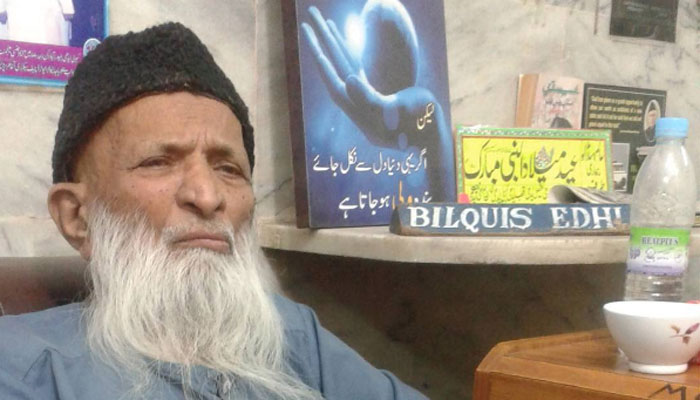
Abdus Sattar Edhi at the Edhi Centre headquarters- file photo
His work was so widely respected by across Pakistan that armed groups and bandits were known to spare his ambulances.
Frail and weak in his later years, Edhi appointed his son Faisal as managing trustee in early 2016.
"I have done a lot of work. I am satisfied with my life," he told news agency AFP in an interview earlier this year.
Edhi is survived by four children and his wife Bilquis Edhi, who ran the Edhi foundation with him.





